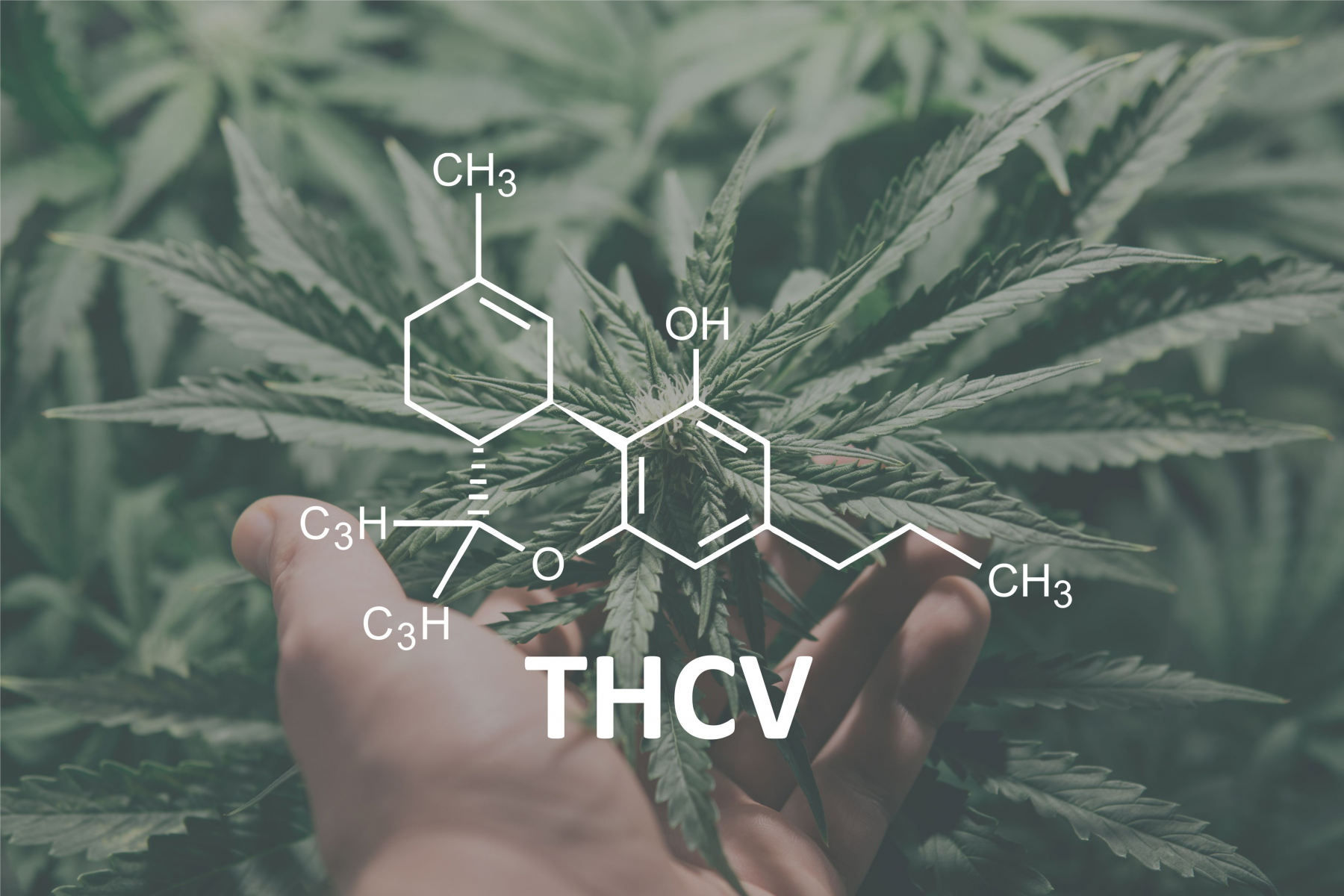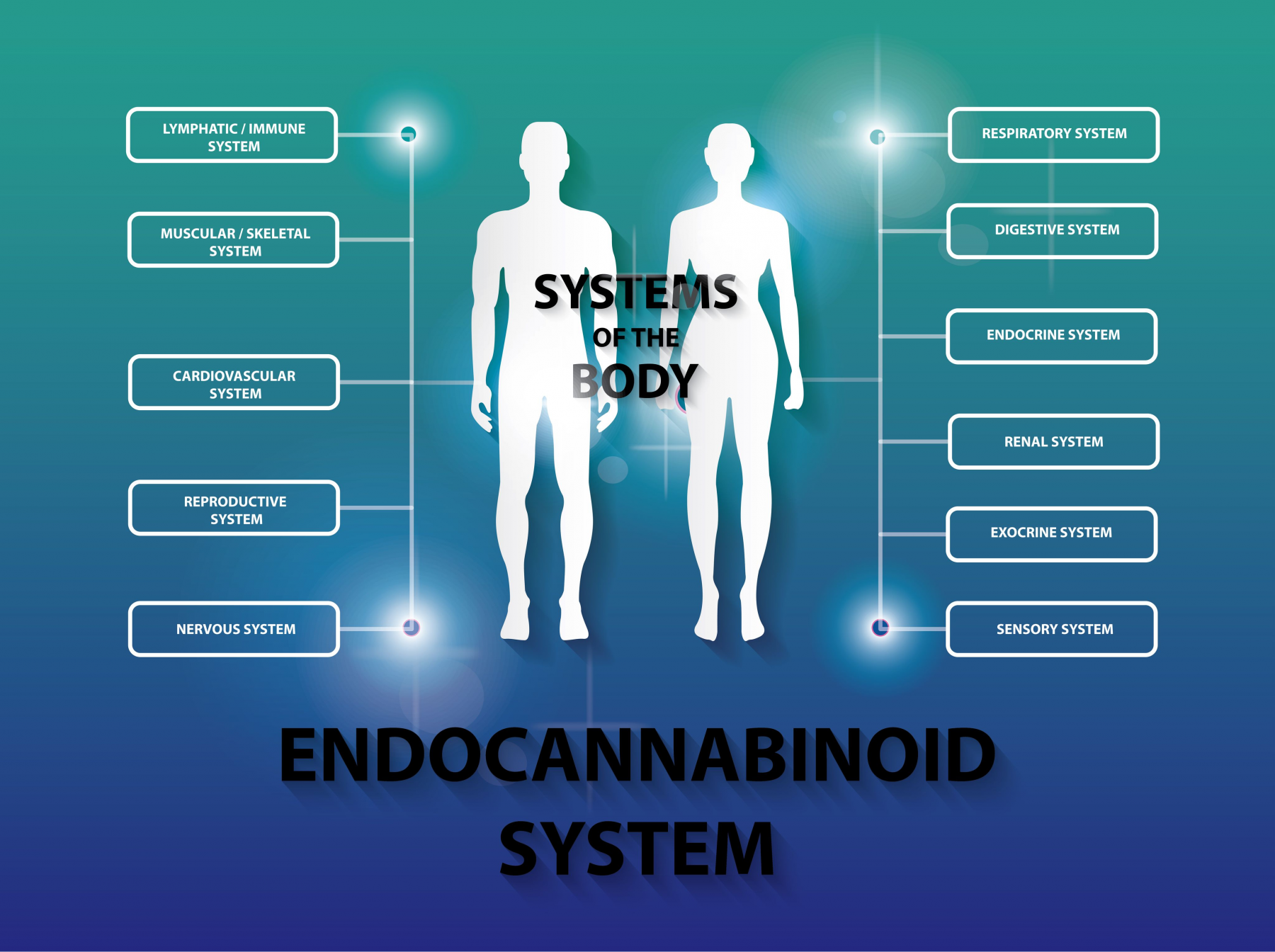Exploring THCV: The Energizing and Appetite Suppressing Cannabinoid
When people think of cannabis, they often associate it with the phenomenon known as “the Munchies”, where using cannabis acts as a stimulator for appetite. In the context of medical cannabis, the appetite-stimulating properties of THC is often helpful for stimulating appetite for those undergoing chemotherapy or experiencing cachexia (“wasting syndrome”).

However, what if we told you that there is a compound in cannabis that may actually help suppress appetite while increasing energy? THCV, or tetrahydrocannabivarin is a cannabinoid in cannabis that is being dubbed as “diet weed” or “weederall” because of its appetite-suppressing and energizing properties. Is THCV really effective for people who are on a weight loss or fitness journey? Can consuming cannabis actually help you lose weight?
At Compassionate Clinics of America, it’s important to us that we understand what some of the common conversations are around cannabis and its components to empower our Illinois, Pennsylvania, Oklahoma, and Missouri medical cannabis patients with the knowledge to make educated decisions on their medical cannabis journey.
Here we’ll take a peek into THCV, and see if it’s really measuring up to the hype of “diet” cannabis.
What is THCV?
THCV, or tetrahydrocannabivarin, is a cannabinoid that is believed to have a less-intoxicating effect than THC, yet has a somewhat-psychoactive effect in that it often brings about feelings of energy, euphoria, clear-headedness, and focus, with an uplifting boost of creativity.

There aren’t many high-THCV cultivars (“strains”) of cannabis, but the cannabinoid is more often seen in landrace cultivars (region and tradition-specific strains) from Africa, such as Durban Poison. It’s also found in the common cultivar AC/DC.
It’s not that common to find cannabis medicine products that are high in THCV, mostly because it’s only expressed in low concentrations, and isolating the cannabinoid is costly and highly technical. However, some companies are capitalizing on the idea of “diet weed” and infusing THCV into edibles and beverages.
THCV has been touted as the “diet” cannabinoid, believed to have appetite suppressing and energetic effects, however the actual evidence supporting this claim isn’t strong enough for Compassionate Clinics of America to support this claim.
Back to the Foundations of Cannabis Medicine: The ECS
As we have discussed throughout our patient education series, cannabis medicine is based on the functioning of the Endocannabinoid System (ECS). The ECS is a master conductor that distributes cannabinoids throughout the brain and body via the CB1 and CB2 receptors, acting as a regulator for bodily systems, including those related to sleep, mood, reproduction, and appetite. The CB1 is most attributed to what influences our behaviors like eating.The cannabinoids that exist within our bodies already (endocannabinoids) as well as those cannabinoids added through cannabis (phytocannabinoids) interact with the parts of our brains that control energy metabolism and feeding behavior.
When the CB1 is stimulated, such as when we ingest THC, we often feel hunger or an increase in appetite. When the CB1 is blocked, we lose that feeling of hunger or appetite.

THCV and Appetite
THCV is believed to block the CB1, thereby blocking feelings of hunger or appetite. It’s often called the “diet weed” because of this; when people consume THCV, they don’t want to eat or snack. In other words, the munchies are suppressed.
A 2009 study using mice observed that when THCV was administered, food intake decreased in fasting and non-fasting specimens, and thus, weight loss was experienced.
While another 2013 study using mice did not observe reduced food intake or increased weight loss, it did observe that THCV may provide a potential treatment against obesity-associated glucose intolerance (prediabetes and diabetes).
A 2015 study that involved humans looked at how THCV affects the reward response with food (feeling a desire to eat) as well as the aversion to eating (not wanting to eat). This study didn’t necessarily see that THCV affected ones desire to eat, but rather it made tasty things more tasty (chocolate), and undesirable things even more undesirable (rotten strawberries).
With these studies taken together, it appears that there isn’t enough solid evidence to suggest that using cannabis medicine products high in THCV will actually help you suppress your appetite or lose weight.
THCV and Energy
THCV is believed not to be intoxicating like THC, but provides feelings of energy, increased focus, and stimulation. Therefore, THCV may be an excellent accompaniment to a pre-workout cannabis ritual, however it’s also important to remember the role of terpenes.
As we have investigated in prior patient education articles, terpenes are responsible for the flavor and aroma of cannabis, but also the nuances effects one may feel. For example, terpenes are the difference between cleaning your house, or parking it on the couch with your TV remote.
Terpenes like limonene and pinene are used for their energizing and focus-inducing properties respectively. On the other hand, terpenes such as myrcene and linalool are more associated with relaxation and calm. Thus, when choosing the best medical cannabis products, it’s not only important to look at cannabinoids like THC, THCV, or CBD, but also what terpenes are dominant within the cultivar, or strain.
Cannabis Medicine, Appetite & Homeostasis

As mentioned, at Compassionate Clinics of America, we feel that the research supporting THCV as a diet cannabinoid is not strong enough to support the claim that it leads to weight loss.
However, we do believe that cannabis medicine is a crucial regulator of the Endocannabinoid System, which helps regulate appetite, ensuring you’re not eating any more, or any less, than your body needs. We promote cannabis medicine as a way to achieve homeostasis, or balance, in all bodily systems, and that includes your appetite and weight.
Move Towards Balance with Your Medical Cannabis Recommendation
If you are in Illinois, Pennsylvania, Oklahoma, or Missouri, connect with us at Compassionate Clinics of America to discuss how cannabis medicine can contribute to your overall health. We see cannabis as a crucial regulator of bodily systems so that they do not risk a more serious problem in the future, which is why we describe ourselves as “Health & Wellness, Re-Imagined”.
Our qualified and passionate doctors will be glad to talk to you about your particular situation to see if cannabis medicine is right for you, and our talented team will be there to support you along the way in your journey to overall health and wellness.























